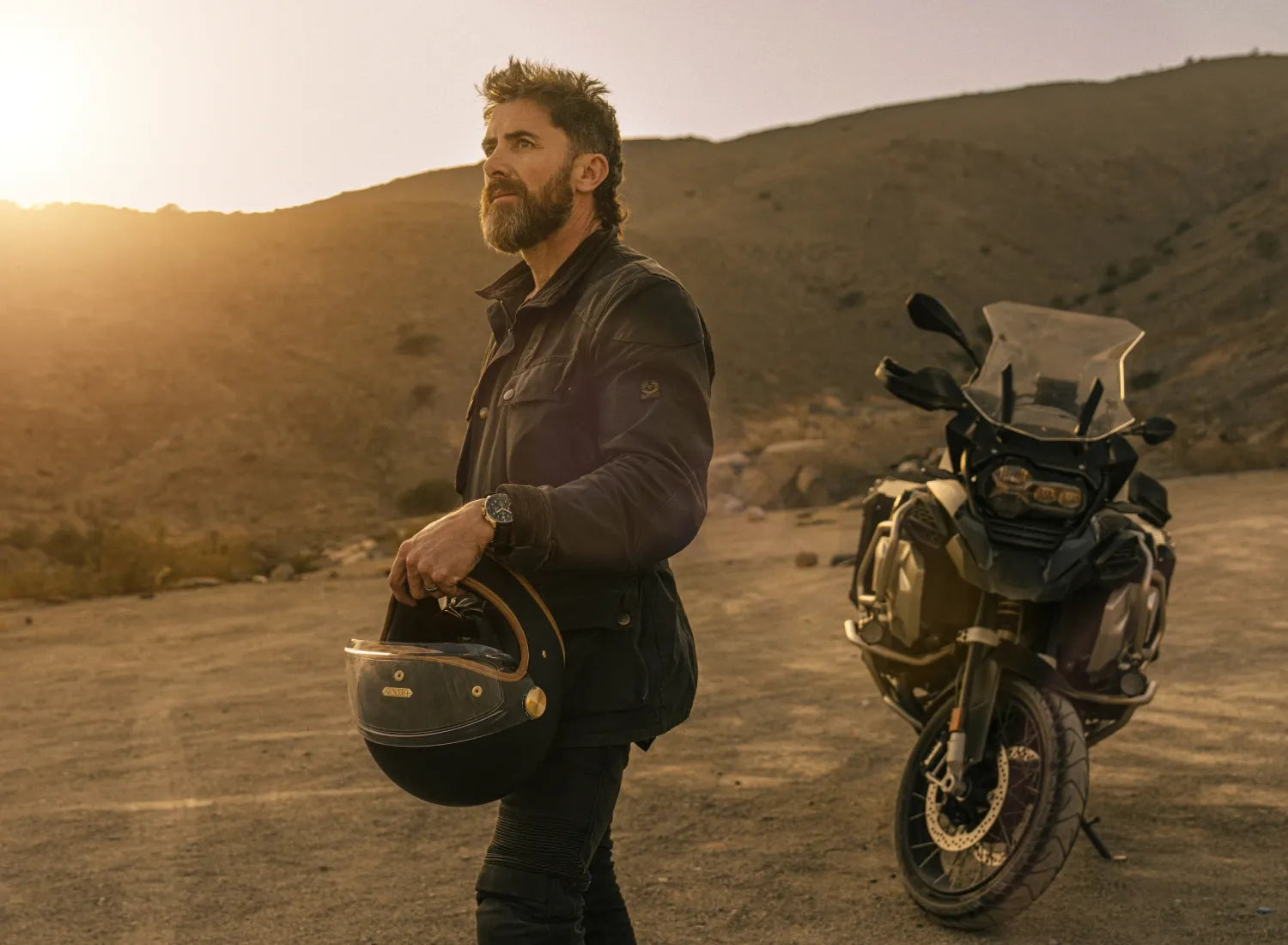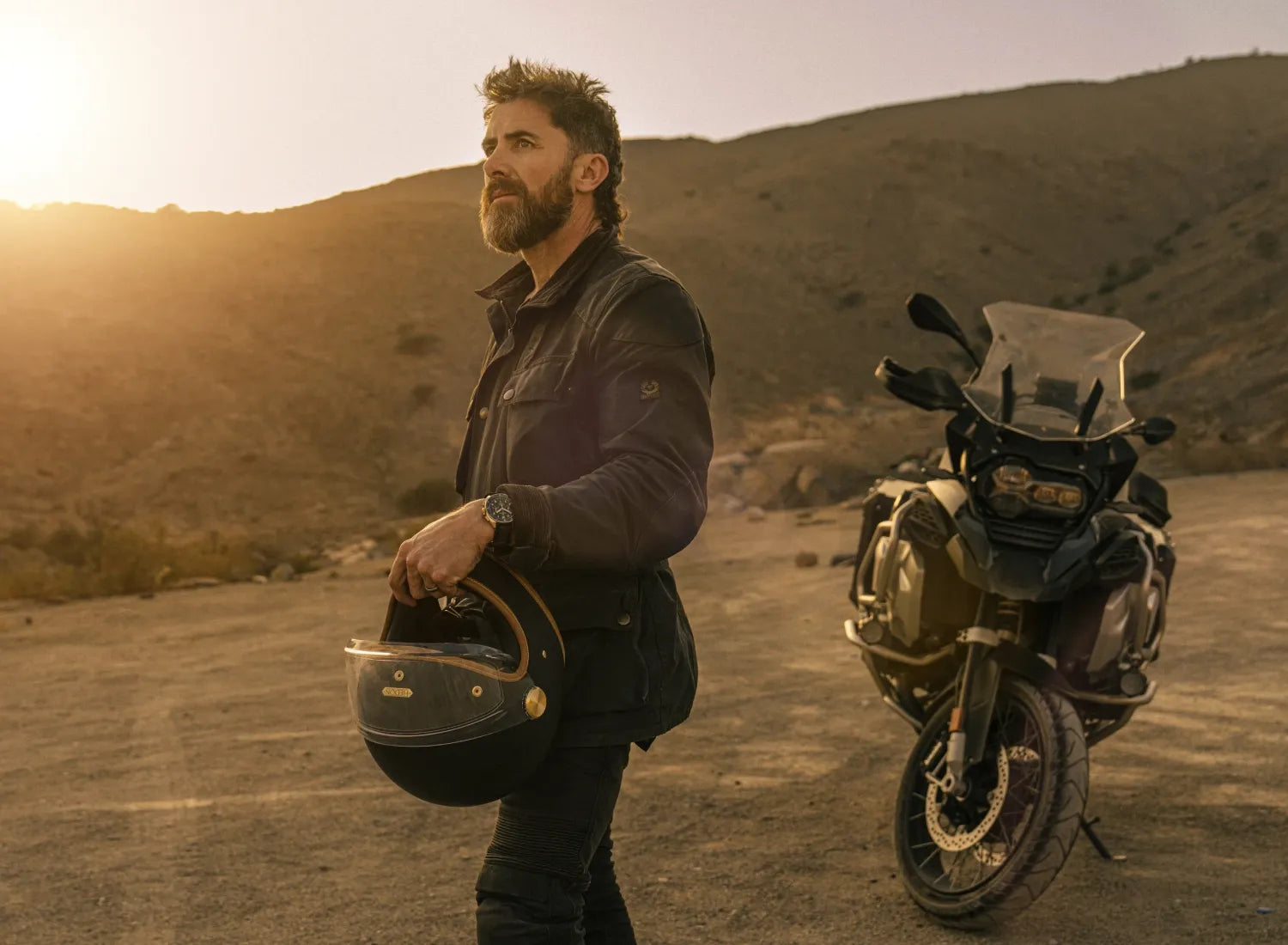How did you get into rowing?
SR: I went to a small comprehensive school in Marlow, not a rowing school. The Head of the English Department loved rowing and asked a few students to give it a go. I was one of them.
MP: I started at school - I had tried cricket for a few years and we had a choice of sports in the summer and I thought “I’ve done cricket” and opted for rowing. A few of my friends swayed me too with the ever present “you are big”!!
What does Best of British mean to you?
SR: The Country has so much history. Competing for Britain is something very special and you want it to shine in every area. The sense of belonging I think is a human instinct, in some ways tribal. It's great to be part of the British brand.
MP: British for me is classic and classy but we should try and steer clear of being stuck in our ways and stuffy. The very best of British manages this balance well - respectful and honouring the past and the history whilst still embracing modern and forward looking.
Culturally would you say rowing is a British sport?
SR: Certainly the racing origins are from this country, but most competitive sport is. At the moment we are one of the top countries within the sport.
MP: We’d like to think so and it certainly has been a mainstay but no it isn’t just a British thing - we were really strong a century ago and again in the last two decades but Germany, Italy, Australia and the US all look at our team with a degree of determination.
Is the training for HRR on these athletes as tough as training for an Olympic Games?
SR: Nowadays Olympians are full-time athletes. Most athletes at Henley are either students or working. Training is tough, but maybe not as consistent as Olympians. MP: Training for Henley is pretty much the same for everyone for the last month - every day at least once a day and all your energy into building the speed for the racing - prepping for whatever the river can throw at you. For the Olympics that lasts for 4 years not just a month.

Bringing on brand partners to HRR this year is a big change, was being British a key factor in selecting the three partners you have announced?
SR: To a degree, yes. We wanted our partners to be iconic, with high standards, and brands that would enhance both parties; True partnerships.
MP: From my own point of view the British element was key. British and luxury are two attributes that we wanted to magnify with the partnerships. Its something that chimes well with the event and that lots of British brands espouse as part of their DNA. So for me it makes total sense.
Other than being British what drew you to Bremont specifically?
SR: Being an outstanding, handcrafted British timepiece manufacturer and based in Henley was an ideal first partner for us.
MP: I've known Bremont and the English brothers for a few years and brought them to Henley as guests before. As a high end British brand based in Henley I think it always made sense to target Bremont as an ideal partner and with Nick and Giles knowing the event and the people, that helps too. Whilst the timing category is and was very competitive I’m delighted that the local company won through.
Which Bremont watch will you be sporting to this year’s HRR?
SR: I hope to have the new bespoke HRR Bremont watch, which is based on the Airco range.
MP: I wear a Supermarine in black with stainless steel bracelet.
Remarkably the HRR races are still mechanically timed, to the nearest second. Is there a reason the timekeeping has stayed this way?
SR: Henley is all about tradition. Our quaint ways of doing things work. Why change?
MP: I think expediency and history. Races were always timed by hand and from the following launches as soon as they started in the second half of the 19th century. It has the immediate advantage of being self contained - there are no communications required from start line to finish for example. With the timekeepers on board the umpires launch, the accuracy is good enough for nearest second. As the technology got better and better the Regatta concentrated on the photo finish technology - relatively cutting edge with both video and freeze frame replay. I suppose over the years we have never felt the need to go to digital or super accurate with the timing - the records are all to the nearest second and still done with Steward thumbs on buttons on the launches. I think the crew appreciate the history and it's a big moment when you get to have your name go in the record section at the back of the programme.
Between you, you have won a number of Olympic Gold medals for Team GB, some of which you won together. How does it compare working together on the water vs off it?
SR: Rowing is very much a team sport. You have to work together to make the boat go as fast as you possibly can. This works off the water as well, but the dynamics are slightly different. All of us being very competitive we want to be the best at everything we do. I think that is healthy, but once in a boat it's us against the world.
MP: We became great friends in the boat in the nineties. We knew each other inside and out and then for ten years or so after we stopped (Steve in 2000 and me in 04) we would have to make an effort to see each other and socialise. Then Steve became Chairman of Henley and now in a sense we work together again albeit with a much larger crew of both volunteers and some paid staff at Henley.

There have been so many highlights in each of your careers, is it possible to pinpoint any particular one as being the pinnacle?
SR: Sydney was probably the pinnacle, but that was more on a recognition basis. The first was the most special.
MP: Athens for me - it was obviously my only Games without Steve in the boat and as such important for me to prove I was more than just his sidekick. The nature of the season was important too - we were far from the dominant winning force that we had been and then to win by a few hundredths of a second was emotional, to put it mildly.
Having competed at the level you both have, would you consider yourselves ‘Tested Beyond Endurance’?
SR: The training and preparation that you have to do to be at the top of the sport of rowing is about power and endurance which we did for many years. So the answer to the question would be 'yes.'
MP: Maybe - I guess we came through.















